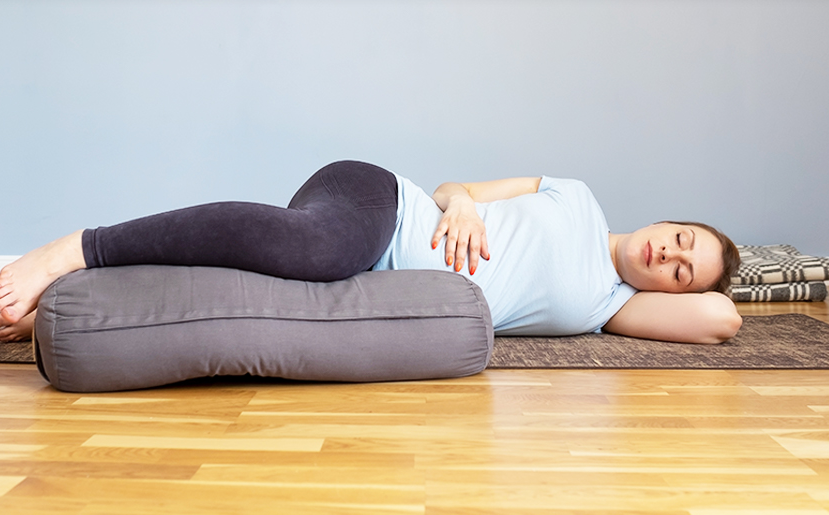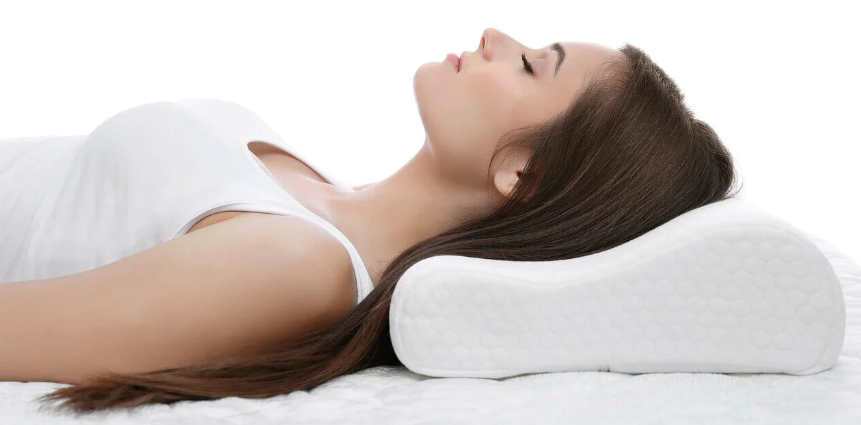Sleeping with pericarditis can often feel like a challenge. The discomfort, the interruptions, and the restlessness can hinder the healing process. But fret not, we are here to provide you with the top strategies, all steeped in scientific consensus, to help you conquer about “How to Sleep With Pericarditis?”. You don’t need to merely manage; you can thrive.
Pericarditis and its Impact on Sleep
Pericarditis, an inflammation of the pericardium or the sac surrounding your heart, can indeed affect sleep. The discomfort and pain from inflammation can cause significant sleep disturbances. Acknowledging this interplay is the first step towards finding solutions.
Best Sleeping Positions for Pericarditis

Often, individuals with pericarditis find relief in certain sleeping positions. Try experimenting with different setups. Many have found comfort lying on their back with the head and upper body slightly elevated, which reduces pressure on the heart. Sleep specialists recommend investing in good-quality, adjustable beds or wedges for the best outcomes.
Managing Pericarditis Pain at Night

Adopting pain management strategies can significantly enhance your nighttime comfort. Non-steroidal anti-inflammatory drugs (NSAIDs) under a physician’s guidance, gentle stretching before bed, and mindful breathing exercises can alleviate the discomfort and promote deeper sleep.
Lifestyle Tweaks

Implementing certain lifestyle changes can boost your overall sleep quality. Limiting caffeine and alcohol, maintaining a consistent sleep schedule, and ensuring a cool, quiet, and dark environment for sleep are beneficial strategies. Physical activity, if permitted by your doctor, can also enhance sleep by reducing stress and promoting tiredness.
Safe Use of Sleep Aids
For some, over-the-counter sleep aids or prescribed medications may help. However, always consult with your healthcare provider before beginning any new medication. Alternative therapies, like acupuncture and meditation, have shown promise in improving sleep, though more research is needed in the specific context of pericarditis.
Heating Pads, Ice Packs, and Pericarditis
While there’s no one-size-fits-all approach, many people find relief by applying a heating pad or ice pack to their chest. If you choose this route, always ensure safety by wrapping the pack in a cloth and limiting application to 15-20 minutes at a time.
Your Pericarditis Journey
Living and sleeping with pericarditis may seem daunting, but remember, it’s a journey. Everyone has unique experiences and what works for one person might not work for another. Be patient with yourself, stay positive, and remember that help is available. We hope that these scientifically-backed strategies offer you comfort and restful nights as you navigate your way to health.
This article is written with the aim to support and guide those living with pericarditis towards improved sleep and wellness. Please note that it is essential to consult with your healthcare provider for personalized advice.
Dietary Adjustments
Food can have a profound impact on sleep and overall heart health. Foods rich in tryptophan (an amino acid that promotes sleep), like turkey, nuts, and seeds, can be beneficial. Additionally, heart-healthy foods—those rich in omega-3 fatty acids, whole grains, lean protein, and a variety of fruits and vegetables—can support the management of pericarditis.
Also, consider your eating patterns. Eating large meals close to bedtime can cause discomfort and disrupt sleep. Try smaller, more frequent meals, and aim to finish eating at least two hours before bed.
Role of Sleep Hygiene
Sleep hygiene refers to the habits and practices conducive to good sleep quality and daytime alertness. Proper sleep hygiene is crucial for anyone suffering from sleep disturbances, including those with pericarditis.
Regular sleep and wake times, a cool and dark sleeping environment, comfortable bedding, and avoiding screens before bed are all part of good sleep hygiene. Your body craves routine, and sticking to regular patterns can be immensely helpful in achieving restful sleep.
Emotional Wellness
Living with a chronic condition like pericarditis can be emotionally taxing and can affect sleep. It’s essential to prioritize emotional wellness. This can be achieved through counseling, support groups, stress management techniques, and mindfulness practices.
You are not alone. Connect with others who are also navigating this journey, and share experiences, strategies, and hopes. Emotional support can make a world of difference in coping with sleep disturbances and improving your quality of life.
Regular Check-ups and Monitoring
Regular check-ups with your healthcare provider are essential to monitor your condition, adjust treatment plans, and address any new symptoms. If you notice any changes in your sleep patterns or if your symptoms worsen at night, inform your doctor.
Additionally, keep a sleep diary to track any triggers or patterns related to your sleep disturbances. This can provide valuable insights for your healthcare team.
FAQs about How to Sleep With Pericarditis?
How does pericarditis affect sleep?
Pericarditis, due to its associated discomfort and pain, can cause sleep disturbances.
What are the best sleeping positions for pericarditis patients?
Many find comfort lying on their back with the head and upper body slightly elevated. However, what works best can vary from person to person.
How can I manage pericarditis pain while trying to sleep?
Strategies include taking NSAIDs (under a doctor’s guidance), gentle stretching, mindful breathing exercises, and certain lifestyle changes.
Are there any natural remedies to help sleep with pericarditis?
Mindful breathing exercises, acupuncture, and meditation may help. However, always consult with your healthcare provider.
Can sleep medications help with pericarditis-related sleep issues?
Yes, over-the-counter sleep aids or prescribed medications may help. However, they should only be used under the guidance of a healthcare provider.
Can dietary changes help improve sleep with pericarditis?
Yes, a diet rich in tryptophan and heart-healthy foods can improve sleep quality. Avoiding large meals close to bedtime can also prevent sleep disruption.
What is sleep hygiene and how can it help?
Sleep hygiene involves habits and practices conducive to good sleep quality. It includes regular sleep and wake times, a cool and dark sleeping environment, comfortable bedding, and avoiding screens before bed.
How important are emotional wellness and support systems in managing pericarditis and sleep disturbances?
Emotional wellness plays a significant role in managing pericarditis and associated sleep disturbances. Support from counseling, support groups, stress management techniques, and mindfulness practices can be immensely helpful.
How often should I see my doctor if I have pericarditis and sleep disturbances?
Regular check-ups are essential for monitoring your condition. If you notice any changes in your sleep patterns or worsening symptoms, inform your healthcare provider immediately.
Mastering the art of sleeping with pericarditis requires patience and perseverance, but with this guide in hand, you are well-equipped to navigate this journey. Remember, the key is not just to manage, but to thrive despite the challenges. You’ve got this!
Also Read: Does Planet Fitness Have a Sauna? (Detailed Guide)
Conclusion
In conclusion, sleeping comfortably with pericarditis is not merely a dream—it’s a reality you can achieve. Harness these strategies and embrace the journey towards restful, rejuvenating sleep. Your body, mind, and heart will thank you. At the end the end, we hope all your confusion about “How to Sleep With Pericarditis?” is resolved. Happy reading!

